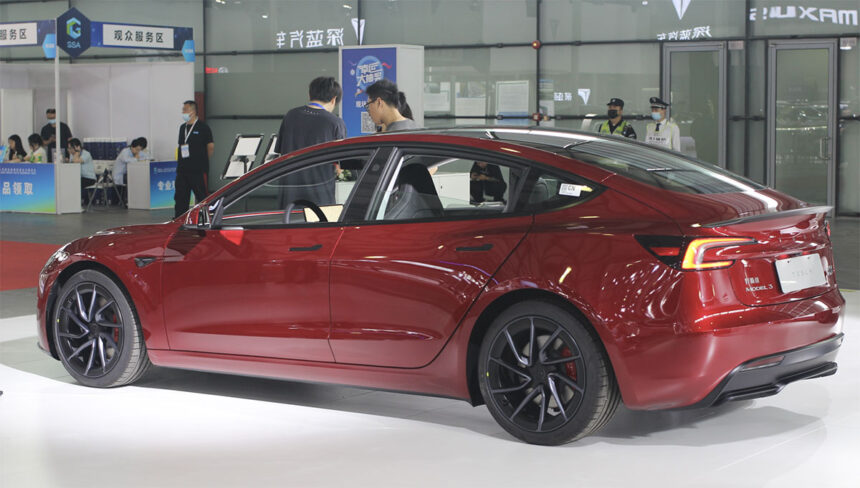Tesla (NASDAQ: TSLA) has once again found itself in the midst of a major recall in China, this time due to software issues affecting over 1.2 million vehicles. The electric vehicle (EV) giant announced the recall, effective immediately, with a promise to address the problems through over-the-air (OTA) updates.
The recall encompasses 335,716 imported Model S, Model X, and locally produced Model 3 and Model Y cars manufactured between July 16, 2023, and December 14, 2024. The main issue at hand is a reverse current that could potentially damage the power supply component on the vehicle’s main board, particularly when the vehicle is started and ready to operate. This could lead to the malfunction of the rearview camera, resulting in the reverse image not being displayed, compromising the driver’s visibility when reversing and increasing the risk of a collision.
To rectify this issue, Tesla will provide a software upgrade to version 2024.44.25.3 or later, free of charge, for the affected vehicles. For those vehicles that cannot undergo OTA updates, Tesla will reach out to users to facilitate the recall process. In cases where a software upgrade is not sufficient, Tesla will replace the vehicle’s computer at no cost to the customer.
Additionally, the recall includes 871,087 locally produced Model 3 and Model Y cars manufactured between January 3, 2022, and September 23, 2023. These vehicles may suffer from an electronic power steering system software glitch that limits steering assistance, potentially causing the electronic power steering to malfunction.
Tesla plans to address this issue by upgrading the software for these vehicles to version 2023.38.9 or later. This recent recall in China is not Tesla’s first, as the company had recalled over 1.68 million vehicles in August 2024 due to similar software issues. The previous recall included locally produced Model 3 and Model Y cars, as well as imported Model S and Model X vehicles, manufactured between October 15, 2020, and July 17, 2024.
In that instance, some vehicles were found to have a system that failed to detect the unlocked state of the frunk lid, potentially causing it to open while the vehicle was in motion. Tesla addressed this issue with an OTA update.
Tesla’s commitment to ensuring the safety and performance of its vehicles is evident through these recalls, highlighting the company’s dedication to addressing any potential issues promptly and efficiently. By offering software upgrades and replacements where necessary, Tesla is taking proactive steps to safeguard its customers and maintain its reputation as a leader in the EV industry.







